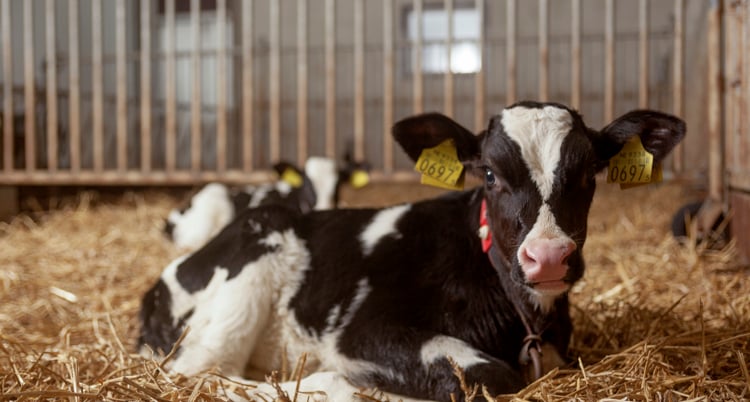Why a good start for your young calves is half the battle won
Did you know that calves are born without a fully functioning immune system? They gain essential protection against diseases through the colostrum in their mother's milk during the initial days of life. Understanding and optimizing this process is crucial for Indian dairy farmers aiming for healthier, more productive herds.

The importance of colostrum
Calves are most vulnerable to digestive and respiratory diseases shortly after birth. In the US, 21.1% of calves suffer from digestive issues and 12% from respiratory conditions. Overall, 16% and 11.4% of heifers require antibiotic treatment for these diseases, respectively. The key to preventing these issues lies in the natural power of colostrum.
The natural power of the animal
It's essential to feed colostrum to young calves immediately after birth. Research shows that calves fed double the amount of colostrum right after birth have lower veterinary costs ($24.51 versus $14.77 per calf). The main reason for this cost difference is that calves receiving less colostrum often require repeated treatments and monitoring. The absorption capacity for antibodies in calves decreases quickly after birth, and the concentration of antibodies in milk can drop by up to 50% within the first 12 hours after calving. Therefore, timely colostrum feeding is critical.
Ensuring high-quality colostrum intake
While it might seem logical to keep mother and calf together immediately after birth, research shows that more than 40% of calves reared this way do not receive sufficient antibodies due to inadequate colostrum intake. The solution is to take control of the calving process, starting from the dry period, which is the cow's final gestation phase. Calves from cows fed according to their needs during this phase fare better.
Additionally, it is vital to measure colostrum quality and act accordingly. If the mother cow does not produce enough high-quality colostrum, using stored colostrum from older cows is a good alternative as it typically contains higher antibody concentrations.
Beyond colostrum: Boosting calf immunity
Another effective method to increase calf resistance and reduce antibiotic use is to vaccinate mother cows against various viruses, such as rota and coronaviruses. This ensures that calves receive essential antibodies through the vaccinated cow's colostrum.
Equally important is effective health management. Keeping animals in optimal conditions with proper hygiene and ventilation encourages activity and good feed intake. Implementing the right feeding strategies further optimises feed intake and the development of young calves, setting them up for a healthy and productive life.
Why this matters for Indian farmers
In India, where dairy farming is a cornerstone of agriculture, these practices can significantly enhance calf health, leading to higher productivity and profitability. By ensuring timely and adequate colostrum intake, measuring its quality, and maintaining optimal farm conditions, Indian dairy farmers can rear healthier calves with stronger immunity.
Optimise your dairy farming practices today by focusing on these essential tips for colostrum management and calf health. Set your calves on the path to a robust and productive life.